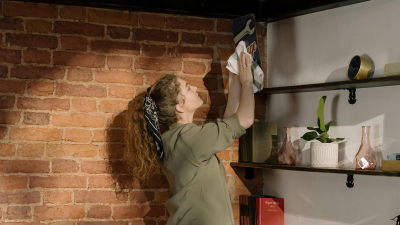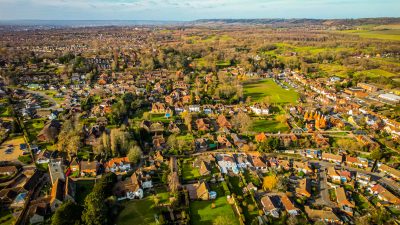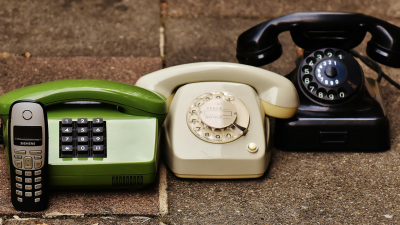Moving Houses – 9 Important Costs To Consider
08-12-2020 Blog
When moving to a new home, there is a lot of information you will need to know to ensure that you are financially prepared for what is to come. This article will go over some of the important costs to consider when moving houses, as well as providing explanations which will help you understand and evaluate your financial situation.

1. Mortgage
If I had to guess the first cost that popped into your head when you saw the title of this article, I would go with mortgage. Getting a mortgage is a daunting task for prospective homeowners when moving houses, especially for first time buyers.
To provide you with a simple definition, a mortgage is a loan taken out to buy property or land. You can get a mortgage through an Independent Financial Adviser (IFA), mortgage broker or lender. Once you have found a mortgage product you like, you can agree it as a ‘Mortgage in Principle’. This tells you how much money the lender is likely to offer and the interest rate you will pay.
As getting a mortgage is a large topic, we have made a separate blog where we explain the fundamentals of mortgages.
2. Credit Score/Credit Card Debt
A big factor of how to look financially attractive to lenders for a mortgage offer, as well as having the peace of mind of general financial stability, is having a good credit file and credit score. Lenders will use these to assess the amount of money they think you can afford to pay back (the ‘affordability test’). The lenders use the affordability test to check your financial capacity to take on a mortgage.
Effective ways to improve your credit score include:
- Never miss or be late on any credit repayments.
- Do not withdraw cash on credit cards – many lenders see this as evidence of poor money management. With the growing obsolescence of cash, this should not be an issue.
- Avoid payday loans, especially when getting a mortgage – using a credit rebuild card correctly is generally both more effective and far cheaper.
- If you have savings, try to reduce your debts with them.

3. Stamp Duty Land Tax
Stamp Duty is a tax you might have to pay if you buy a residential property or a piece of land in England and Northern Ireland. There are several rate bands for Stamp Duty, with the tax being calculated on the part of the property purchase price falling within each band.
If you are reading this blog before the 30th June 2021, then you are in luck. This is because until the 30th June 2021, you will pay no Stamp Duty tax on the purchase of your main property costing up to £500,000. Properties costing more than £500,000 will pay a reduced rate of Stamp Duty, based on the value of the property over £500,000. This makes now a fantastic time to buy new homes.
4. Deposit
A deposit is the amount of money you put towards the cost of the property when you buy your home. On average, you need to pay at least 5% to 20% of the purchase price. Generally, the bigger the deposit you can pay, the more likely you are to be given a mortgage (subject to a mortgage affordability assessment), and the lower your interest rate is likely to be. If you are searching for new build homes, a small reservation deposit may also be needed to take it off the market.
Help to Buy is a current government equity loan scheme which can help first time home buyers purchase a new property with just a 5% deposit. If the purchase price is less than £600,000, you can borrow up to 20% of the purchase price interest-free for the first five years if you have at least a 5% deposit. If you live in London, you can borrow up to 40% of the purchase price.
The Government has confirmed it will extend the Help to Buy scheme from 2021 to 2023. However, this extension will be restricted to first-time buyers purchasing newly built homes. 80% of customers have currently reserved Clarendon Homes’ Ivy Court development through the Help to Buy scheme.

5. Fees
There are several fees here and there which you will encounter when moving houses, including:
- Surveyor fees – Before you buy a property, get it checked by a surveyor. This should not be overlooked, because you need to see if there are any problems before you buy. Surveys range from a basic home condition survey costing around £250 to a full structural survey from £600 or more. Paying for a good quality survey could save you money on repairs in the long run.
- Solicitor fees – You will normally need a solicitor or licensed conveyor to carry out all the legal work when buying and selling your home. Legal fees are typically £850-£1,500 including VAT at 20%.
- Local search fees – these will cost you £250-£300, to check whether there are any local plans or problems.
- Mortgage fees – These might include a booking fee (£99-£250), an arrangement fee (up to £2,000) and a mortgage valuation fee (£150 or more). It’s best to pay these fees upfront rather than adding them to your mortgage if you can afford it, otherwise you’ll be paying interest on them for the life of the mortgage.
- House removal fees – The average removal cost ranges from £300-£600, although renting a van to do it yourself would often be cheaper if you can do the journey.
- Cleaning fees – If you are moving from a rental property you may want to look at hiring professional cleaners to leave the place in a good condition, especially if you put down a deposit on a rental property which you want back.
- Estate agent fees – if you are selling a property you currently own through estate agents, you will need to pay a fee of around 1.5% of the final selling price (including VAT).
6. Insurance
When applying for a mortgage, the lender will require you to take out buildings insurance to protect your new home against damage from things such as fire or flooding.
It is also a good idea to have contents insurance for all your possessions, and life insurance to pay off your mortgage should you die before you have repaid the entire amount.

7. Council Tax
The amount of council tax you pay is based on where the property is and the valuation band the property is in (apart from in Northern Ireland where rates are set individually). I recommend having a look on the government website if you are eligible for exemption or reductions when moving houses.
8. Bills
Even if you now own your own freehold property, you unfortunately have not escaped bills. Bills will be a constant pain in your backside, but you will need to pay them for necessities such as gas, electricity, water, heating and broadband when moving houses. It is sadly just the way the world works. These are usually billed monthly, so make sure you have enough funds available to cover them as well as your mortgage.
9. Interior Costs
Let’s say you have got all the costs for buying the house sorted, and you have finally moved into your new home. Now you are in a big empty house, so it is important to leave some cash spare for buying some interior necessities to really feel at home. Some early things to consider are:
- Furniture – Beds, sofas, tables, and chairs are all key ingredients to a new home, whether you want to keep your existing furniture or buy new furniture is up to you. If you do not currently own furniture and you are low on cash, a classic money saving idea is to see if you can have old chairs, tables or sofas from friends and families. Online marketplace groups are also great – you can find some good quality second had pieces if you spend a bit of time looking and these can be great in the short term until you have the funds to purchase brand new furniture. Occasionally if a house has been ‘dressed’ as a show home by the seller or developer , they will let you buy the furniture off them, so you can always check to see if this is an option.
- Wi-Fi – Everyone needs Wi-Fi nowadays. Whether it is for leisure or work, it is important to get this sorted as soon as possible.
- Kitchen equipment – This particularly applies if you are a first-time mover. Cutlery, pots, pans, plates, glasses… the list goes on. The hefty food shop you will need to do when you first move in is also often overlooked, so make sure the kitchen does not catch you out.

Moving houses is an exciting but arduous task. Hopefully, this article has given you a good insight to some of the important costs associated with moving, to help ease some of the pressure. I have provided most of the initial housing costs to look out for, but there are undoubtedly more specific costs which will not apply for everyone. So, don’t just take my word as gospel, make sure do your own research too!
Got any questions or feedback on the blog? Or maybe a topic you would like to be covered in a future blog? Email cameron.hagan@clarendonhomes.co.uk today, I would love to hear from you!


